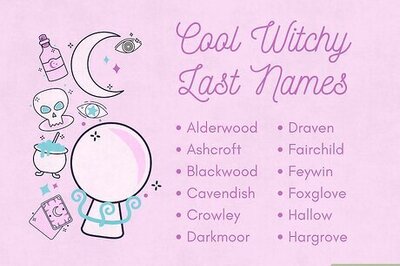
views
The social media networks including Instagram, Facebook and Twitter have become a mess, mostly because of influencers. Clearly social networks have adopted the wink and ignore policy over time. But it will soon become better. The Advertising Standards Council of India (ASCI) has taken note of what these influencers and some brands are up to, often by disguising unregulated advertising as social media posts, and serving those to users who may not be able to identify that this is an advertisement. In a reply to a tweet by a user, the ASCI said that they are working on guidelines that will bring more transparency and help protect consumer interests. Since these social media influencer posts also involve financial transactions, those disclosure regulations need to be in place as well. “ASCI will seek feedback on the draft guideline when ready,” they say.
This entire influencer thing has been getting a bit out of hand off late. Social media platforms have often had the wink and allow policy when it came to brands and individuals colluding on social media to hawk their products intertwined with rather cool and attractive photos (fancy locations, stylish attire and generous edits), glorious text (often written and shared by the brand themselves) and lots of hashtags (we should have the ## feature too, such is the enthusiasm). Users didn’t, for a while know what is true and what is not true. Some are genuinely labelled as sponsored or partner posts, while a lot of the posts are not. And that is a tight slap in the face of genuineness. In fact, there is so much ambiguity that one needs to use their own judgement to understand which posts are "influencing" you and which are genuine posts made by someone trying to simply share an experience or opinion. And arguments can ensue because of that.
In December last year, online shopping network Dealspotr's Millennial Fashion Shopping Study suggested that 52% of millennials who surf the social media networks regularly say they trust these influencers lesser than ever before. That could very much be the case, because in reality, it is quite difficult to trust these influencers who hawk everything from baby wipes or luxury cars. They really can’t be experts at everything, can they? Well, sort to burst the bubble, but it seems like someone is feeding them the text that needs to go with the fancy photo. I do not like getting scammed, and clearly, a lot of people agree with that opinion. But the numbers still indicate it is serious business. According to a third-party Instagram tool Hopper, the global influencer marketing space could be worth as much as $5-10 billion by the end of next year. Well, why wouldn’t it be? When there are enough brands out there who think influencers are their shortcut to getting more people to buy their stuff (though that may not necessarily be the case), then money will keep flowing down the drain.
But the questions about authenticity and legitimacy remain an issue. In June this year, a combined research by Swedish e-commerce start-up A Good Company and data analytics firm HypeAuditor revealed that among all the so-called influencer accounts in India, they have a combined total of as many as 16 million fake followers. Influencers in India seem to have as many fake smiles as fake followers. Only influencers in the US (49 million) and Brazil (27 million) spend more on buying fake followers, likes and engagement. “Companies are pouring money into influencer marketing, thinking that they are connecting with real people and not Russian bots. In reality, they are pouring money down the drain and giving away free products to someone who acquired a mass-following overnight,” said Anders Ankarlid, CEO and co-founder, A Good Company.
A 2017 research by Sway Ops, an online anti-fraud company, suggested that these so-called influencers don’t actually deliver on what they promise. A single day’s worth of posts tagged #sponsored or #ad on Instagram contained over 50 percent fake engagements and out of 118,007 comments, only 20,942 were not made by bot followers, the research says. Bot comments are responsible for over 40 percent of total comments and that more than 15 percent of influencers who sign on to do sponsored never create a post—and this included cases where they took physical products and gadgets.
So basically, a whole lot of noise but not much substance? I do not, even for a moment, feel bad for the brands who choose to remain oblivious to the game of fake engagement that is being played out on social media by some influencers. If just numbers is what they need, then guess fake numbers are okay too.
Oh wait, most of these influencers like to be referred to as digital creators, public figures or some such thing. I do apologize.


















Comments
0 comment